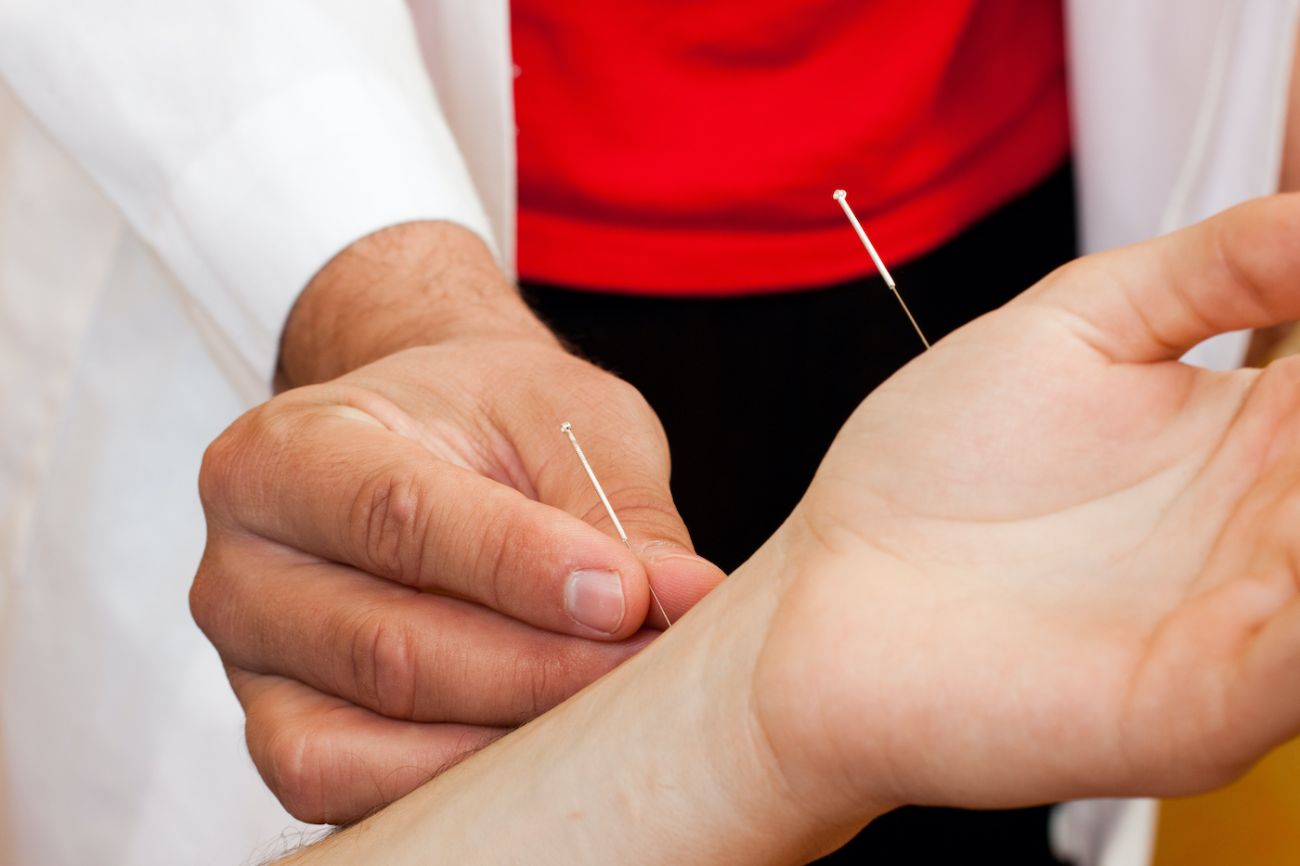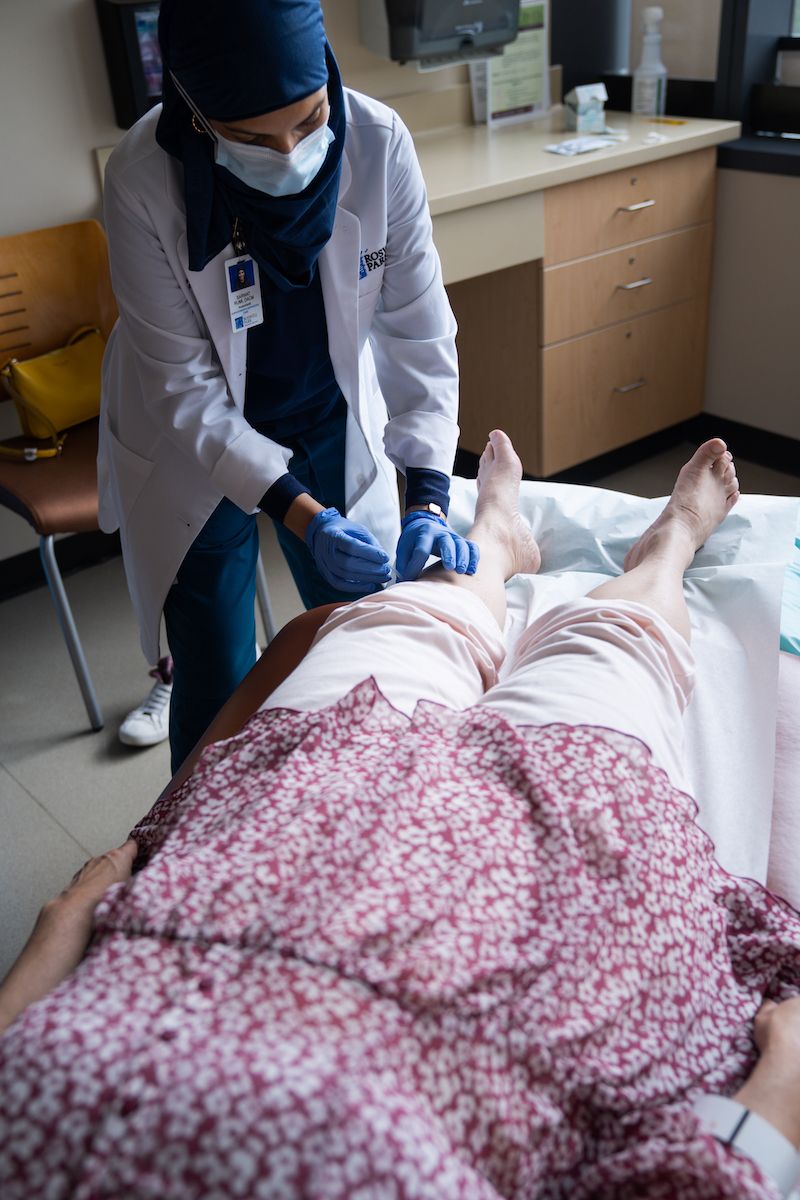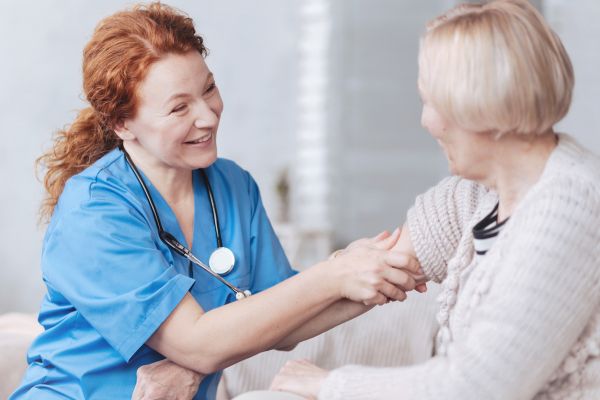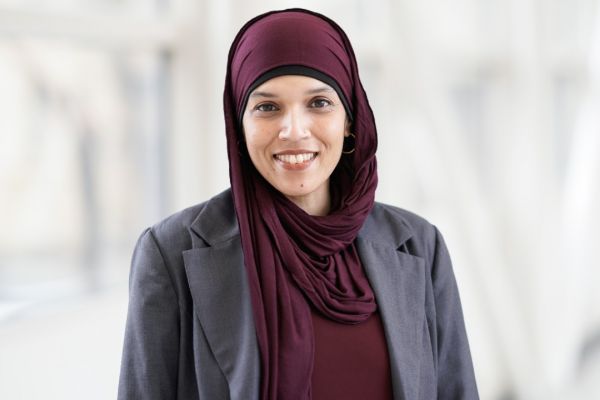Acupuncture is a technique used in East Asian medicine to relieve pain and treat a variety of health conditions. Very fine needles are inserted into the skin to stimulate specific acupuncture points on the body. Acupuncture is based on the belief that your vital energy, or Qi, flows through channels in the body called meridians and these channels interact with your muscles, connective tissues, blood vessels, organs and nerves. According to Chinese medicine, blockage of the flow of Qi causes pain and disease. When the needles stimulate points along the channel, the blockage is released and the flow of Qi is restored.
According to the U.S. National Institutes of Health (NIH), studies suggest acupuncture can be helpful in managing pain, nausea and vomiting caused by cancer treatment. Encouraging research is continuing on its value in treating other health issues such as neuropathy, insomnia, hot flashes, dry mouth and lymphedema. Acupuncture is considered safe when performed by an experienced, well-trained practitioner using sterile needles.
How acupuncture may help people with cancer
Acupuncture can support cancer survivors from diagnosis through treatment and beyond. The goals are to optimize physical and emotional health, improve mood and calm the mind. Since the most common response after an acupuncture treatment is deep relaxation, it can be used to lessen a patient’s anxiety about a routine scan, or an upcoming procedure or test they expect to be uncomfortable or painful. During cancer treatment, acupuncture treatments may help prevent or lessen the severity of side effects such as pain, nausea, vomiting and fatigue. After treatment has ended, acupuncture treatments can help improve mood, induce calmness and treat late or lingering side effects such as neuropathy and postoperative pain. Few complications have been reported and single-use, disposable needles have greatly reduced the risk of infection. Other risks are minor: an occasional bruise, or feeling lightheaded or sleepy.
What to expect from acupuncture treatment
On the day of your treatment, wear loose, comfortable clothing that can be rolled up past the elbows and knees. Try to have a meal or snack within two hours of your appointment — unless you are having acupuncture during a chemotherapy infusion and your provider told you to fast or avoid food before your chemotherapy.
The acupuncturist will swab the points on your skin with alcohol and insert the needles. The needles are disposable, sterile and ultra-fine. They do not have a cutting edge like hypodermic needles. As the needles are inserted, you may feel nothing, or you may feel a mild sensation or pinch. There should not be pain once the needles are in place. If a needle remains uncomfortable, your acupuncturist will adjust it or take it out.
Needles will remain in place for 10 to 20 minutes in a group session; 20-30 minutes in a private session. During this time, please do not move around, as the needles may become dislodged. If you need to move, please get the attention of the acupuncturist, who will remove needles, if necessary. Most people find acupuncture deeply relaxing and may doze off while the needles are in place. When the time is up, the acupuncturist will remove your needles and dispose of them. After a treatment, drink plenty of water and avoid high-energy activities.
Your acupuncturist will always respect and follow any restriction that your physician places on your care such as not scratching or breaking the skin on certain body parts. Your acupuncturist may also determine that certain areas should not be needled.
Never miss another Cancer Talk blog!
Sign up to receive our monthly Cancer Talk e-newsletter.
Sign up!Acupuncture services at Roswell Park
Acupuncture is being offered in two ways at Roswell Park Comprehensive Cancer Center:
- Private sessions are offered In the Survivorship and Supportive Care Center.
- Group acupuncture treatments during infusions of chemotherapy or immunotherapy are offered at Roswell Park’s Amherst Center.
Ask your acupuncturist to estimate how many treatments will be needed and the cost of each treatment. At Roswell Park, acupuncture must be paid for at the time of visit. Some insurance plans do cover acupuncture; call your health insurance company to learn about your plan. You may request a receipt that you can submit to your insurance for reimbursement if necessary. Roswell Park also offers reduced rates for those who qualify. You can find more specific information about the fee schedule and the income-based rates in an Acupuncture Info Packet, available through the Survivorship and Supportive Care Center.
For more information about insurance coverage of acupuncture and other integrative health measures, see the National Center for Complementary and Integrative Health (NCCIH) fact sheet Paying for Complementary Health Approaches. The NCCIH is the Federal Government’s lead agency for scientific research on complementary and integrative health approaches and part of the National Institutes of Health and the U.S. Department of Health and Human Services. Learn more about Integrative Medicine at Roswell Park and read our Acupuncture FAQ.




